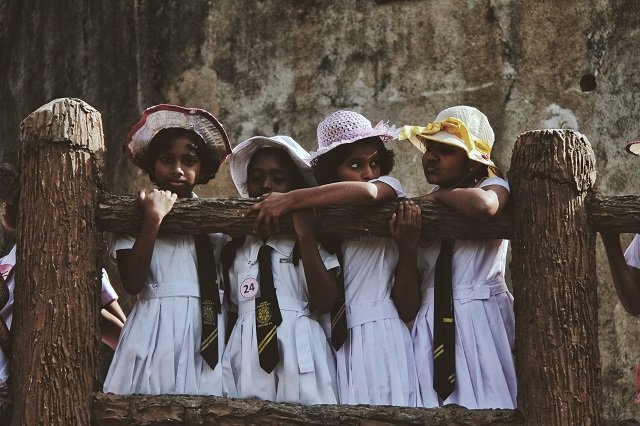Since money is not coming our way in anticipated amounts and at anticipated pace, to overcome the resource gap, Sri Lanka presented to COP 28 the Tropical Belt Initiative.
by Ranil Wickremesinghe
Following article based on the speech by the author as the President of Sri Lanka at the World WaterForum in Bali, Indonesia.
At the outset let me thank the President of the Republic of Indonesia, H.E. Joko Widodo for hosting the 10th World Water Forum in Bali. The theme ‘Water for shared prosperity’ focuses on collective responsibility in managing water resources, the life blood of all living beings and ecosystem services. This follows the “Sustainable Management of Lakes” Resolution proposed by Indonesia at the UNEA-5.
 |
| Water Temple, Bali [File Photo] |
During the UNEA -6 held this year, the European Union together with Sri Lanka brought about the resolution “6/13 Effective and inclusive solutions for strengthening water policies to achieve sustainable development in the context of climate change, biodiversity loss and pollution”.
I also take this opportunity to congratulate the Government of Indonesia for taking the initiative during the G20 Presidency to launch the Global Blended Finance Alliance. Sri Lanka expresses its willingness to become a pioneering member.
Climate Change and water stress are two sides of the same coin. The cumulative effects of Climate Change are the main reason for what we see today as the water resource crisis. According to IPCC projected climate scenarios till 2090, Sri Lanka’s dry zone will get drier and the wet zone will get wetter in an unprecedented manner. Sea level rise will cause salt water intrusion in coastal areas resulting in salinization of land. I took this example from Sri Lanka while appreciating the fact that this is what is happening all over the world.
In global terms the solution to water stress revolves around climate mitigation and adaptation. Combating the triple planetary crisis with specific measures aiming at water. In the Nationally Determined Contributions water is classified under the adaptation sectors. On the other hand, mitigation is equally important as emissions are the root cause. Combating the threats to water resources posed by climate change requires colossal amounts of financial resources.
The Global North has failed miserably in adhering to the commitments to provide financial resources for Climate Change. There is a notable lack of political will after the euphoria of the Glasgow COP was over. Climate Change denial is gaining ground in the West.
The establishment of the Loss and Damage Fund, after a long drag, if effectively implemented can help to bridge the gap. This is a big IF. The Summit for a new Global Financing Pact will hopefully reach a conclusion by September this year. Nevertheless, the final outcome will depend on the results of the US Presidential Elections in November.
The OECD in 2021 projected the investment for global water related infrastructure at US $ 6.7 trillion for 2030 and US$ 22 trillion for 2058. The UNEP Report 2023 “Underfinanced – Underprepared” estimate the under financed gap to combat climate change at US$ 194 – 366 billion per year. The Global North is willing to fund death and destruction in the Ukraine. But there is an unwillingness to fund measures to avoid death and destruction caused by climate change.
Since money is not coming our way in anticipated amounts and at anticipated pace, to overcome the resource gap, Sri Lanka presented to COP 28 the Tropical Belt Initiative. A novel concept of harnessing commercial investments in the natural forests, mangroves, swamps, grassland water bodies and other natural resources in the Tropical Belt towards tackling the triple planetary crisis. The Tropical Belt from the time of its existence has been a ‘shield’ for the whole world. It is a catalytic accelerator of solutions to the ongoing triple planetary crisis. Investment in the tropical belt will bring in transformative changes to combat the triple planetary crisis.
In this context, the Initiative on Global Blended Finance will enable the Global South to mobilise the much needed financial resources. The US$ 9.4 billion available to commence this fund is a good example of leveraging concessional finance. The Tropical Belt Initiative will also benefit from this facility. In this context Sri Lanka proposes a 10% levy on the annual profits of global tax evasion assets deposited in tax havens. The annual profits are estimated at US$ 1.4 trillion per annum. The levy can be enforced by imposing sanctions, similar to those imposed on Russian Banks on the Banks and the Financial Institutes which fail to implement the levy. The monies raised by these levies to be made available to be utilised by the Blended Finance projects on Climate Change adaptation and mitigation.
The Global Blended Finance initiative is a supplement to the Loss and damage funds – not an alternative. These two measures must work in tandem. Therefore at this forum, let us express our appreciation for the hard work done by Indonesia in proposing this Initiative at the G20 culminating the establishment of the Alliance Secretariat.
Ranil Wickremesinghe is a Sri Lankan politician who is the current president of Sri Lanka since 21 July 2022. He also holds the position of Minister of Finance of Sri Lanka. He has been the leader of the centre-right United National Party since 1994.














Post a Comment